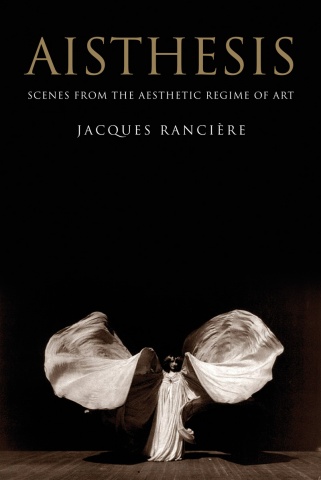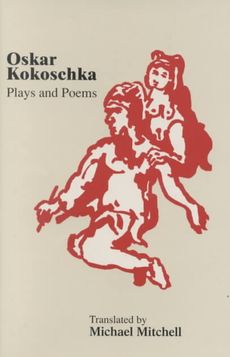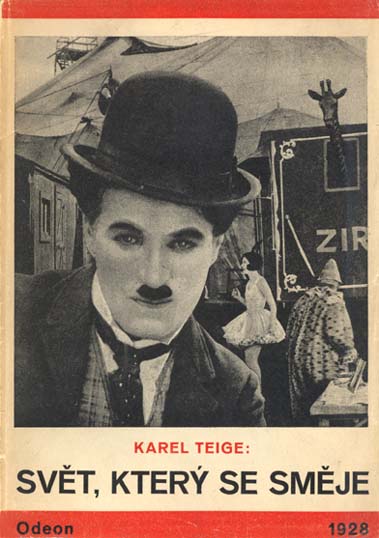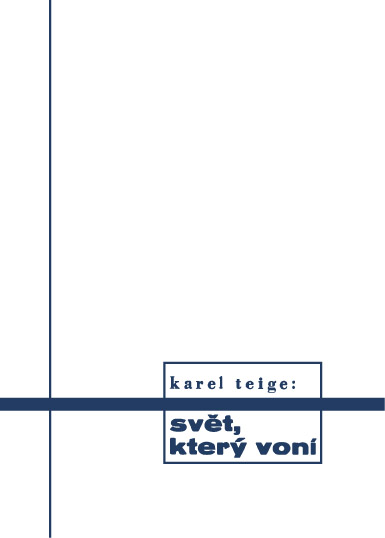Jacques Rancière: Aisthesis: Scenes from the Aesthetic Regime of Art (2011/2013)
Filed under book | Tags: · aesthetics, art, art history, art theory, body, cinema, dance, film, life, literature, music, painting, pantomime, philosophy, photography, poetry, politics, representation, sculpture, theatre, theory

Rancière’s magnum opus on the aesthetic.
“Composed in a series of scenes, Aisthesis–Rancière’s definitive statement on the aesthetic–takes its reader from Dresden in 1764 to New York in 1941. Along the way, we view the Belvedere Torso with Winckelmann, accompany Hegel to the museum and Mallarmé to the Folies-Bergère, attend a lecture by Emerson, visit exhibitions in Paris and New York, factories in Berlin, and film sets in Moscow and Hollywood. Rancière uses these sites and events—some famous, others forgotten—to ask what becomes art and what comes of it. He shows how a regime of artistic perception and interpretation was constituted and transformed by erasing the specificities of the different arts, as well as the borders that separated them from ordinary experience. This incisive study provides a history of artistic modernity far removed from the conventional postures of modernism.”
First published as Aisthesis : Scènes du régime esthétique de l’art, Éditions Galilée, 2011
Translated by Zakir Paul
Publisher Verso Books, 2013
ISBN 1781680892, 9781781680896
304 pages
via falsedeity
Reviews: Hal Foster (London Review of Books), Joseph Tanke (Los Angeles Review of Books), Marc Farrant (The New Inquiry), Ali Alizadeh (Sydney Review of Books), Jean-Philippe Deranty (Parrhesia).
Roundtable discussion with Rancière at Columbia (video, 43 min)
Selected interviews and reviews (in French)
Oskar Kokoschka: Plays and Poems (1973/2001)
Filed under book | Tags: · drama, expressionism, poetry, theatre

The well-known painter, Oskar Kokoschka, also produced a considerable and significant body of literary work: plays, a few poems, essays and autobiographical stories. The present volume contains all his plays (some in more than one version) and the poems, plus one short prose passage.
All the pieces in this collection, apart from the play Comenius, were written in the period 1907-1918. The plays, despite Kokoschka’s dislike of the term, reflect the style of Expressionism current in Germany during the period. Indeed, the early ones anticipated and, to as certain extent, helped to define Expressionism. The titles of some – Job, The Burning Bush, Orpheus and Eurydice – reflect the use of the mythic mode. Comenius, which was started in the 1930s and only completed in 1972, is a large-scale historical panorama, focusing on the figure of the Czech humanist and educational reformer, Jan Amos Komenský. Comenius’ fate reflects Kokoschka’s own experience of an increasingly dark world of conflict and oppression. His ideal of a humanity guided by the light of reason cannot find realization amid the strife and carnage of the Thirty Years’ War; at the end of the play it is reduced to a tiny spot of light in Rembrandt’s picture The Night Watch. The Burning Bush, Orpheus and Eurydice and Comenius appear in English translation for the first time.
Originally published as Das schriftliche Werk, Hans Christians, Vienna, 1973-76
Translated by Michael Mitchell
Afterword by Karl Leydecker
Publisher Ariadne Press, Riverside, California, 2001
Studies in Austrian Literature, Culture, and Thought Translation series
ISBN 1572410418, 9781572410411
250 pages
PDF (no OCR)
Comment (0)Karel Teige: O humoru, clownech a dadaistech, I-II (1928-30/2004) [Czech]
Filed under book | Tags: · aesthetics, art, art theory, avant-garde, circus, dada, film, humour, poetry, surrealism, theatre


Dvousvazková kultovní práce vůdčího teoretika české avantgardy je unikátní studií o dadaismu.
První svazek obsahuje kapitoly “pojednávající o humoru, o světském a neliterárním dadaismu a o poezii cirkusu, music-hallu a lunaparku”. Druhý svazek “kreslí svět moderní básně, svět, který voní; podává genezi dadaismu přehledem vývoje od Baudelairea až k Tzarovi, charakteristiku hnutí dada i surrealistické revoluce a v závěru pokouší se formulovat teorii a estetiku nové poezie pro všecky smysly, podloženou fakty korespondence a analogie mezi jednotlivými obory ‘umění’..”, to, co “je jádrem nové estetické teorie, která se zve poetismem”. S doslovem Jiřího Brabce.
O humoru, clownech a dadaistech, I: Svět, který se směje
Originally published by Odeon, Prague, 1928, 112 pp
Publisher Akropolis, Prague, 2004
ISBN 8073040425
114 pages
O humoru, clownech a dadaistech, II: Svět, který voní
Originally published by Odeon, Prague, 1930, 240 pp
Publisher Akropolis, Prague, 2004
ISBN 8073040530, 9788073040536
244 pages
review (Vol. 1, Andrea Jochmanová, Literární noviny, in Czech)
review (Vol. 2, Jan Nejedlý, Čro Vltava, in Czech)

